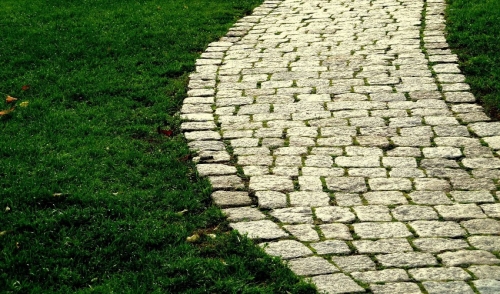
Use Paving Stones to Transform Your Outdoor Space
If you find yourself gazing out into your backyard thinking of something you can do to spruce things up, have you considered using paving stones? Installing them is not difficult, and depending on the size of your project, it can be completed in as quickly as one weekend. The concept of using paving stones has been around as long as civilization --and for good reason. It is a simple, tried-and-true choice for builders who want attractive, durable results using simple tools and materials.
Few projects can be accomplished so quickly and last as long. Paving stones are versatile enough to suit jobs of any size or type. Regardless of your project: A simple walkway, a flower garden, a patio with barbeque, or even a driveway --paving stones are ideal. Below are some things to think about before starting your paving stone project:
Find inspiration
Do you already have an idea of what you want? If not, there are plenty of places to find inspiration. View landscaper’s websites and browse their galleries to see what is possible with paving stones. Of course there are always magazines as well. You may find new ideas that you weren’t aware of before you began your search.
Study your yard
Consider your needs and your space limitations. Can you fit your idea into the space you have? Take into consideration proximity to structure and trees. A small tree today may be a big problem in the future as the root system grows.
Types of stones
Are paving stones and stone pavers the same thing? Sort of. Paving stones (also referred to as pavers) are not necessarily made from naturally occurring stone. They are often cast from man-made materials like bricks. Some are cut from natural stone and therefore are called stone pavers. Besides a limitless number of colors, there are different types of pavers, such as brick, concrete, natural stone and even rubber. Most man-made pavers are also available in interlocking shapes.
Draw a picture
A piece of graph paper can be a great help. Draw out your plan, scaling each square as one foot (or other easily converted unit of measure). Color the bricks if you are planning to make a pattern with your stones. Using graph paper makes it easier to count how many stones of each color will be needed.
Unlike a deck, the maintenance for a stone patio is a snap. They are modular in nature, so it is also easy to move them around as your landscaping needs change. Also, have you ever stepped barefoot onto your deck after it’s been in the sun all day? Pavers are cooler on your feet. Finally, pavers won’t crack like concrete can. If planned and installed properly, you’ll be ready for the summer simply by sweeping your patio and bringing out your furniture!
